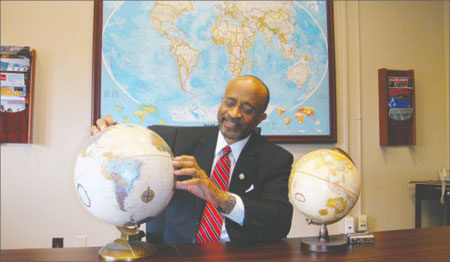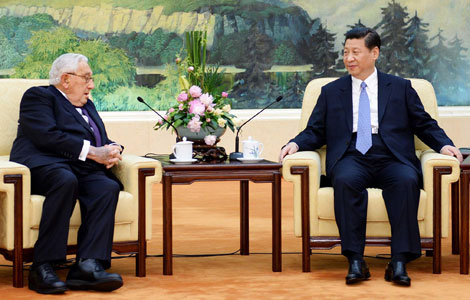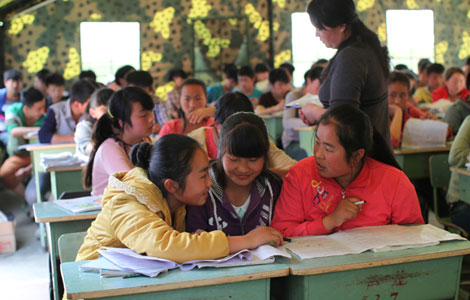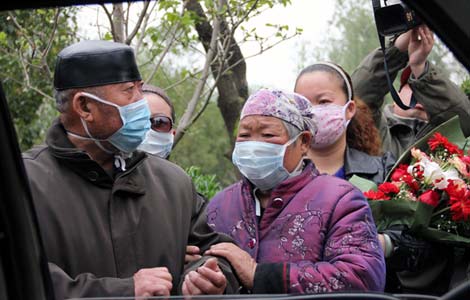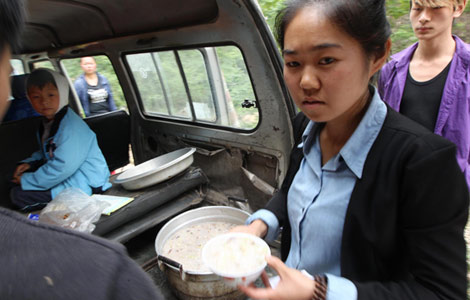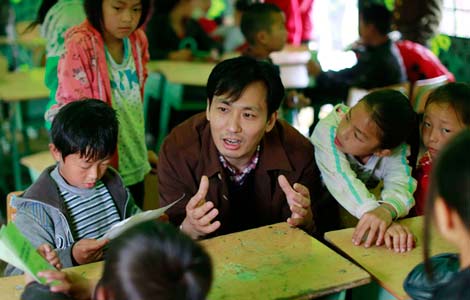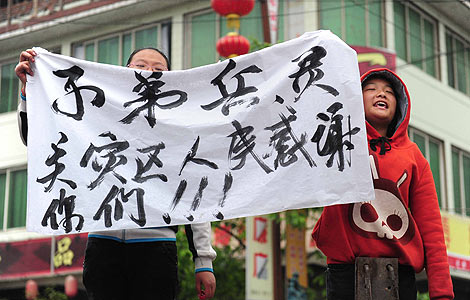Donated books enrich Missouri
Updated: 2013-04-25 11:01
By Kelly Chung Dawson in New York (China Daily)
|
||||||||
|
University of Missouri Vice-Provost Handy Williamson says he hopes that through culture exchanges with Chinese institutions, people in Missouri can be more informed about the Chinese people and culture. Provided to China Daily |
Building on a 100-year relationship with China, the University of Missouri recently received a gift of 1,000 old, rare and contemporary books to expand its Asian literary collection.
Acquisition of the books, which cover Chinese literature, language and culture, was coordinated by the Confucius Institute at Missouri with assistance from Shanghai Normal University, Chinese educational organization Hanban and MU's office of vice-provost for international programs.
"What we aim to do is promote the China-US relationship," Vice-Provost Handy Williamson said. "Whether it's through cultural programs or lecture series, or initiatives like this, our programs with the Confucius Institute are important because the community here is also very interested in learning more about China.
"We have been fortunate at the university in being able to establish a Confucius Institute here to help facilitate and realize the desires of our students and community," he said.
Wen Ouyang, co-director of the Confucius Institute on the Columbia, Missouri, campus, said local demand for information about Chinese culture is growing.
"You see more and more people with an interest in going to China, and in building a future with connections to China," she said. "Our hope is that when people visit the library, even if they haven't gone there with one book in mind, they will see the selection of books and be motivated to not only learn about China and the Chinese language, but perhaps also to visit someday."
The books will be available to students and faculty as well as people outside the university. Ouyang said high-school students taking Chinese-language classes may find the books particularly useful in preparing for advanced-placement exams.
The University of Missouri currently has about 1,000 Chinese students enrolled, with about 300 Americans studying Mandarin, she said.
Ties between the Midwestern school and China, Williamson said, date to Missouri's matriculation of American journalist Edgar Snow, who in 1937 published Red Star Over China, a well-known book about the early years of Chinese communism. Also, Walter Williams, who founded Missouri's renowned journalism school, helped establish a journalism department at Yenching University in China in 1928.
Additionally, MU has coordinated several trade trips to China that enabled Missouri entrepreneurs and legislators to meet Chinese counterparts to discuss cross-border business opportunities.
In 2011 the university helped arrange a delegation's visit to China, during which a $4.4 billion trade deal was signed. Focused on agricultural products, the agreement boosted the state's exports to China by more than $1 billion, more than doubling the 2010 total.
In December 2012 the university assisted with another trade mission, facilitating various business and trade relationships, Williamson said.
The university's Confucius Institute, established in 2011, serves people beyond the campus, Williamson said. It also works with middle and elementary schools in the Columbia area to provide cultural programs including Chinese ink painting; qigong, a system of breathing exercises and meditation; and classes in paper-cutting crafts.
"It's our expectation that from these activities and language courses, people in Missouri will become more enlightened and educated regarding Chinese people and culture, and therefore in the future will be more informed consumers of Chinese culture and goods," Williamson said. "At the same time, we'll be more informed purveyors of Missouri commodities and goods - it's a two-way street."
"Although books might be going out of style, they represent the wise words and messages by which different cultures can live together."
kdawson@chinadailyusa.com
Most Viewed
Editor's Picks

|

|

|

|

|

|
Today's Top News
Sluggish growth takes its toll on foreign lenders
Investors find a home in overseas real estate
More Chinese travel overseas, study reveals
Xi meets former US heavyweights
Li in plea to quake rescuers
Canada to return illegal assets
Beijing vows to ease Korean tensions
Order restored after deadly terrorist ambush
US Weekly

|

|
